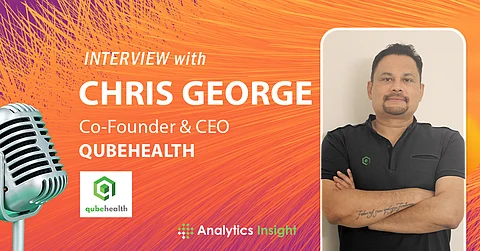

Financial technology (FinTech) is transforming the way healthcare is accessed, financed, and managed. With innovations ranging from digital payments and AI-driven insurance models to blockchain-powered medical billing and buy-now-pay-later healthcare solutions, the intersection of FinTech and HealthTech is revolutionizing patient experiences and provider efficiencies.
In this episode of the Analytics Insight Podcast, host Priya Dialani explores this groundbreaking synergy with industry expert Chris George, co-founder and CEO of QUBEHEALTH. The discussion delves into how financial innovations are addressing some of the long-standing challenges in healthcare accessibility, particularly in regions like India, where affordability remains a critical concern.
Chris George introduces QUBEHEALTH, a pioneering platform often referred to as "Google Pay for Healthcare." The app enables seamless UPI payments at hospitals, clinics, diagnostic centers, pharmacies, and doctors across India. Users benefit from an instant 10% cashback on all medical expenses, making healthcare payments more affordable. Additionally, the platform offers a pre-approved credit line of up to 10 lakh rupees at zero interest, allowing users to manage expensive treatments without financial stress.
Before diving deeper into this innovative solution, Priya and Chris discuss the evolving landscape of healthcare financing, the impact of digital payments, and the role of employer-backed healthcare benefits in making medical services more accessible.
Join us for this engaging conversation as we explore:
The rise of digital payments in healthcare and its impact on patient affordability
How AI-driven Insurance Models are enhancing coverage and reducing fraud
The role of blockchain in streamlining medical billing and claims processing
How Buy-Now-Pay-Later (BNPL) solutions are making expensive treatments more accessible
The future of FinTech-driven healthcare financing and accessibility
Tune in to this insightful discussion to learn how FinTech is shaping the future of healthcare payments and accessibility, ensuring that medical services are more affordable, transparent, and efficient for all.
